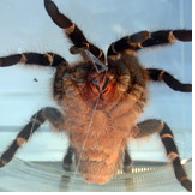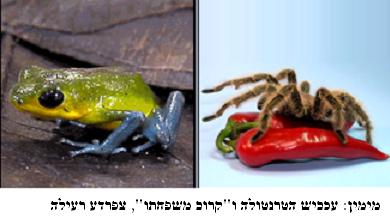It turns out that animals and plants can have identical products - such is the spicy substance of the tarantula and the chili pepper. And what can the toxin produced by the poisonous frog be used for? And how does a zebra spider weave its web?
Both are the same…
A bite from the dangerous tarantula spider is physiologically no different from eating an extremely hot red pepper. This is according to a study published in November 2006 in the journal Nature. The peptides in tarantula venom, called venilotoxins, stimulate the same nerve receptors as capsaicin, the active chemical in chili peppers. Both the moss and the plant do not want to eat...
clearly inaccessible
If they weren't so dangerous and deadly, the poisonous skin secretions of the frogs would serve as a wonderful mosquito repellent. The pomiliotoxins, the compounds famous for their ability to harm and kill large animals, are secreted by poison dart frogs. One hundred micrograms of the toxin can kill a person. But according to research published in November in PNAS, one type of pomiliotoxin has the ability to repel mosquitoes and other insects. Industrial use of this specific toxin will allow the development of a new product against mosquitoes and other insects, without the danger of harming humans and other large animals.
sticky feet



One response
What a beauty
Soon it will be possible to add a tarantula spider to the kitchen